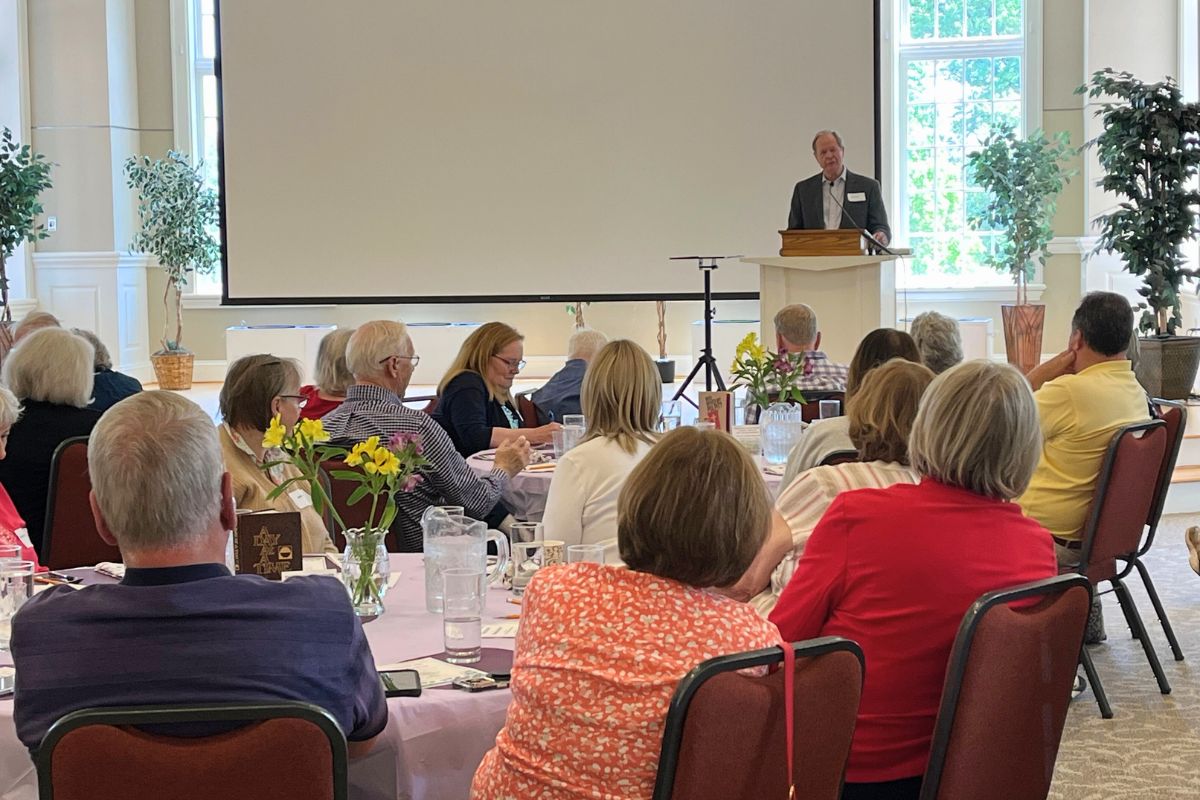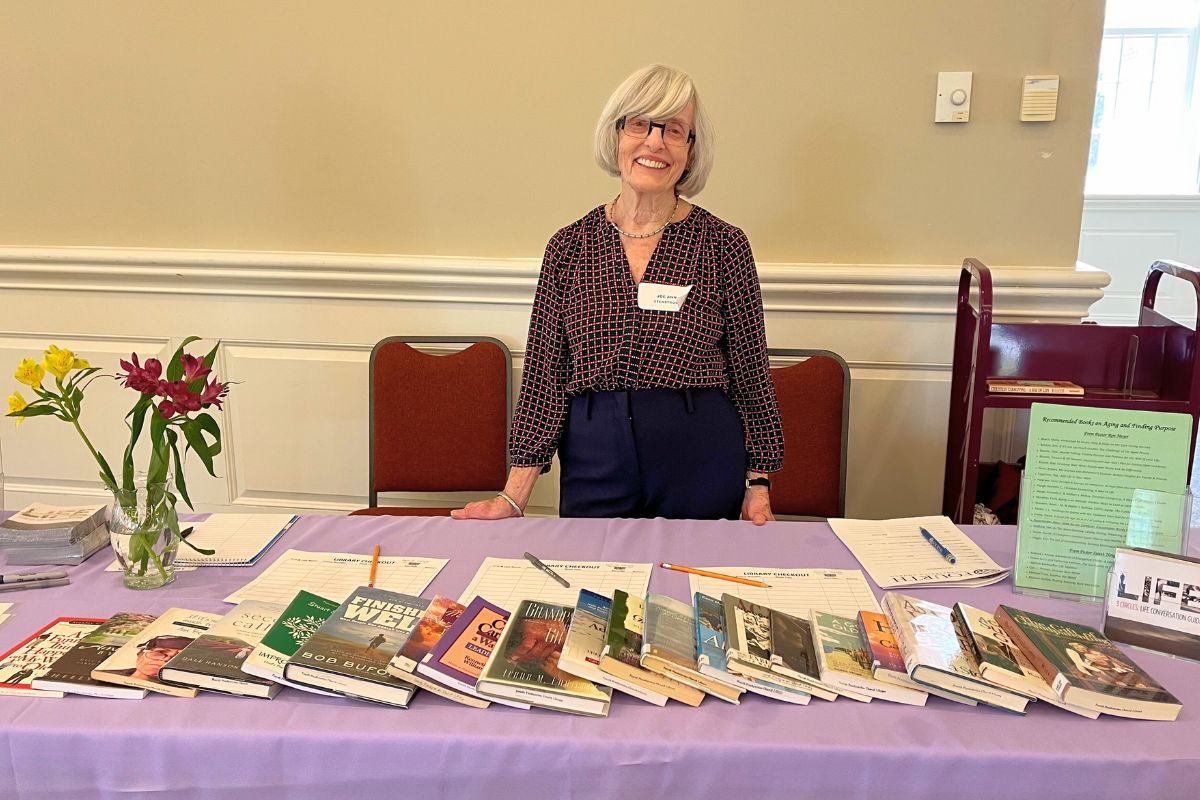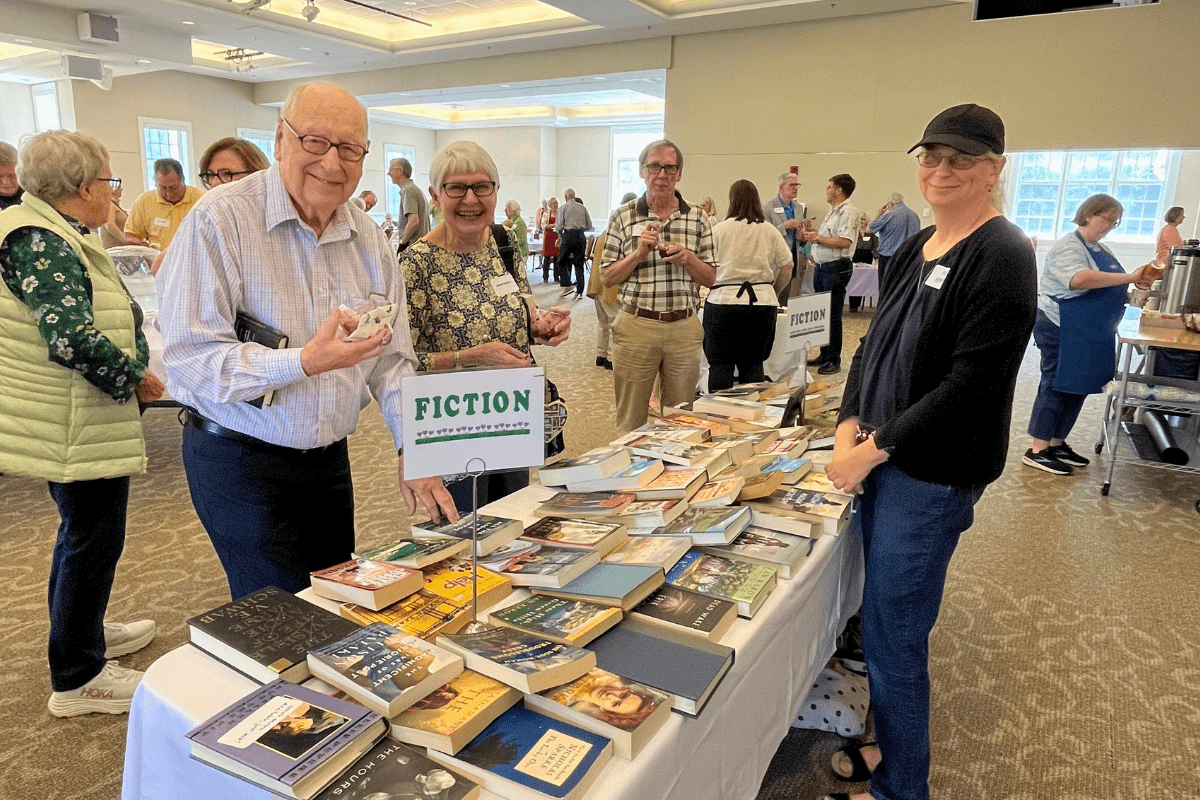Lessons Learned About Aging

Fourth’s Pastor Emeritus Ron Meyer delivers remarks during the Young at Heart luncheon in May.
Fourth’s Young at Heart 60+ fellowship recently held a luncheon with a summer reading theme. The event included a book exchange as well as remarks on the 20-plus books in Fourth’s library on aging, grandparenting, and caring for loved ones, and a challenge to include the Bible in one’s summer reading. Here are some of the general insights that were shared in the talk:
- In 1920 the average life expectancy was 53. Today it’s 78. How will we use these additional 25 years in this world?
- Travel, entertainment, and leisure industries have capitalized on this life expectancy increase and market how they can help one use the additional time. Has the church approached how we might serve the kingdom?
- A pastor in our Presbytery lectured on aging recently at a meeting. He indicated the final third of life begins at 52.
- Older age forces questions on us. “Where will we live?” “Will we run out of money?” “How will we spend our time?”
- One library resource divided retirement years into seven stages. The first stage was freedom—the first day one no longer goes to work. Chapter seven ended with rest. Chapter two, reflection, encouraged readers to finish paperwork that may have been deferred during busy working years. Only 32% of people have a will.
- The foundation of our second calling (retirement years) is prayer.

Fourth Library volunteer Joe Ann Stenstrom with a selection of books during the Young at Heart luncheon in May.
Finishing Well
Bob Buford’s 2004 book, Finishing Well: What People Who Really Live Do Differently!, features interviews with 60 exceptional people who were not only successful in the first half of life, but found fresh energy in the second. A common thread in these 60 stories is that each found a need, something that was broken, and they did whatever needed to be done to fill that need.
Often such passion flowed out of their career skills or life experiences. Buford called these people “code breakers.” That is, they broke the code, figuring out what makes them get up every day, to serve and be used. Here are some examples from the book:
- One Harvard professor challenges us to contribute to others’ lives, to share knowledge. “The fruit of my work grows on other people’s trees,” he said.
- Seminary professor Dr. Howard Hendricks said, “A career is what you’re paid to do. A calling is what you’re made to do.” Hendricks then posed this question: “Think about the people who have blessed your life. Who stands out as finishing well?”
- Millard Fuller, founder and leader of Habitat for Humanity, commented, “Many Christians don’t get out of the box, so we have a bunch of salty Christians just salting each other.”
- One retiree used her career skills in retirement to produce Billy Graham ministry films as well as producing Christian plays for her church. She said, “All my life I would say, ‘Here I am Lord, use me’ and he would say ‘Not yet.’ And when I said ‘life is over, I’m old and worn out,’ then he said, ‘Now I can use you.’”
How to Spend Your Retirement Years?
Most of us are ordinary people and will not develop worldwide ministries as these people did. We’re encouraged to be ourselves, use our gifts, skills, and talents as we’re able, and not necessarily seek to be extraordinary, but God-honoring with our later years, ordinary or extraordinary.
Buford concluded each of his interviews with the same question: “What does finishing well mean to you?” He writes, “Retirement makes one define what makes you get up in the morning.”
All of the church library’s resources on the topic of aging well are intended to encourage or teach us to finish well, but not tell us how. That’s up to us. The list of books can be found in the library or you can download it here.
What does finishing well mean to you? It’s a question worth pondering and acting on.

Young at Heart luncheon attendees browse the book swap tables.
